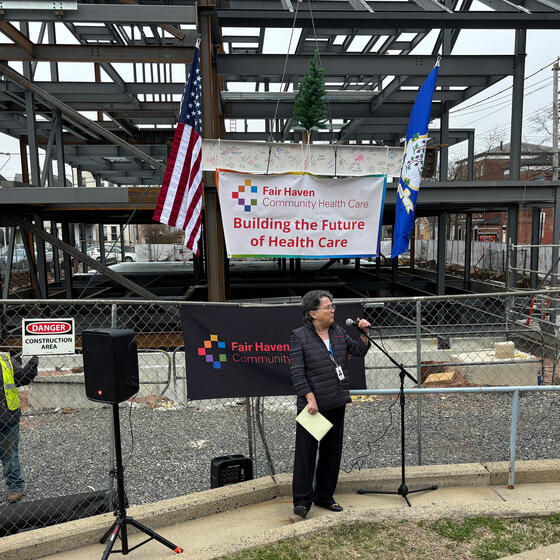Alumni
Can a Clinic Comply with Trump’s Executive Orders Without Leaving Patients Behind?
For more than 50 years, New Haven’s Fair Haven Community Health Care has provided care to immigrants and other vulnerable populations. We talked with CEO Suzanne Lagarde ’14 about how the organization is grappling with federal executive orders and budget cuts that threaten its mission.

How do you lead when lives are on the line?
Combat leadership involves making countless decisions, with limited information, shifting variables, and extreme time constraints. Colonel Rich Morales ’99 and soldiers from his battalion describe their 15-month deployment in Iraq.
Q8 Alumni Forum
Yale SOM alumni weigh in on the question "Who needs leaders?"
Is the Gates Foundation remaking education
Hilary Pennington '83 is the Gates Foundation's director for special initiatives. She talked with Qn about leading the foundation’s effort to build the country’s social capital by rethinking postsecondary education and the challenges faced by the nonprofit sector in this economic climate.
So you want to work in sustainability?
As more and more companies integrate environmental concerns in their business functions, the role for sustainability professionals has grown. The founder of Sustainability Recruiting comments on this developing field and provides advice for people interested in working in the area.
When is financial sustainability the wrong goal?
Should mission-driven nonprofits put money aside for a rainy day or spend what they have meeting the present needs of the people they serve?
Alumni Forum
Yale SOM alumni from around the globe weigh in on the question "Can we afford sustainability?"
Can we afford sustainability?
If sustainability is understood as the continuation of human life on earth, there is no alternative. Whatever the cost, we have to bear it. But how do we determine the right price to pay right now to ensure survival in the distant future?
Is uniqueness sustainable?
In an era when it's possible to surf in Phoenix and ski in Dubai, places are becoming interchangeable. Even areas with stunning natural resources can find themselves under pressure from this flattening effect. For communities, sustainability might mean strengthening their distinctive characteristics.
Can coffee help juice economic development?
A nonprofit is teaching business skills to East African farmers in order to let them enter the high-profit global market for specialty coffee. The project showed enough promise to get $50 million in underwriting from the Gates Foundation, and now aims to reach 180,000 growers. David Browning ’99 of Technoserve describes how to educate small-hold farmers to plug into the global market.
Can the business of food impact climate change?
It is hard to image that a healthy, home-cooked meal is contributing to climate change, but the food consumed annually by a family of four in the U.S. requires 970 gallons of gasoline to fertilize, produce, and transport. That's only slightly less than the 1070 gallons the average family uses in their cars. Helene York '88 talks about one food service company's goal of reducing its carbon footprint while still maintaining a successful bottom line.